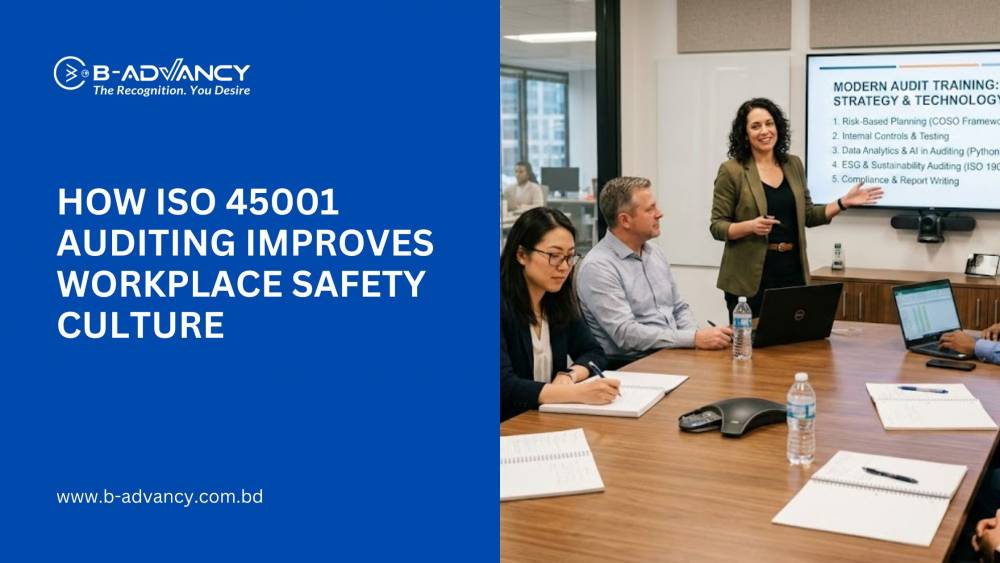Introduction:
Bangladesh, the land of vibrant flavors and fertile fields, is rapidly becoming a rising star in the global food game. But in this competitive arena, taste alone isn't enough. Building trust and ensuring food safety are the secret spices that unlock international markets and secure loyal customers. This is where Hazard Analysis and Critical Control Points (HACCP) certification enters the picture, transforming Bangladesh's food industry from delicious to delightfully safe.
What is HACCP?
HACCP, short for Hazard Analysis and Critical Control Points, stands as a beacon of proactive food safety management. Comprising seven principles, HACCP certification is more than a badge of compliance; it's a testament to a commitment to producing safe and high-quality food. This certification equips businesses in Bangladesh with a competitive edge in the global market.
Importance of HACCP Certification in Bangladesh:
The surge in awareness regarding food safety in Bangladesh is propelled by increased exports, a commitment to international standards, a burgeoning middle class with heightened food safety expectations, and unfortunate local incidents of food poisoning. For local businesses, HACCP certification translates into a spectrum of benefits, from elevated product quality and safety to fortified brand reputation, expanded international market access, reduced food waste, and heightened operational efficiency.
Why is HACCP Certification Crucial for Bangladesh?
The benefits are as rich and diverse as the spices found in its bustling markets:
-
Global Passport: In today's world, food safety regulations are stricter than ever, and HACCP certification is the golden ticket to international markets. It acts as a badge of honor, demonstrating your commitment to safe food handling and building trust with global consumers.
-
Domestic Delight: As Bangladesh's middle class expands, so does the demand for quality food. HACCP-certified businesses stand out in this discerning market, commanding premium prices and building brand loyalty with savvy local customers.
-
Operational Savvy: Implementing HACCP isn't just about safety; it's about smart business. By pinpointing and controlling critical points, you minimize waste, boost efficiency, and ultimately, save money. Think of it as adding a pinch of financial prudence to your recipe.
-
Success Stories: From aromatic shrimp farms to mango chutney makers, Bangladeshi businesses across the food spectrum are reaping the rewards of HACCP certification. Their achievements showcase how embracing safety opens doors to international acclaim and fuels sustainable growth.
Getting HACCP Certified in Bangladesh:
Understanding the certification process in Bangladesh is paramount for businesses seeking HACCP certification. Accredited HACCP certification bodies play a pivotal role in ensuring adherence to global standards. This journey is facilitated by training and guidance resources, though businesses must be prepared for the associated costs and time commitments.
How many STEPS are there in HACCP certification?
Understanding the seven steps of HACCP is pivotal for businesses delving into certification. These steps, ranging from conducting a hazard analysis to establishing critical control points, provide a comprehensive framework for effective risk management throughout the food production process.
The 7 Steps to HACCP Mastery:
-
Conduct a Hazard Analysis: Identify where, why, and how foodborne hazards might occur in your operation. Think of it as meticulously scouting your culinary landscape for potential dangers.
-
Determine Critical Control Points (CCPs): Locate the specific stages in your process where you can control or eliminate identified hazards. These CCPs will be the focal points of your safety efforts.
-
Establish Critical Limits: Define safe and acceptable parameters for each CCP, such as temperature, cooking time, or pH level. These limits create clear boundaries between safe and unsafe territories.
-
Establish a Monitoring System: Implement procedures to regularly check and record data at each CCP. Think of it as constantly taking the temperature of your culinary journey.
-
Establish Corrective Actions: Define what needs to be done if critical limits are not met. These actions should quickly bring your process back on track, preventing unsafe products from reaching the market.
-
Establish Verification Procedures: Regularly conduct independent checks and audits to ensure your HACCP system is working effectively. This is like having a trusted food critic regularly review your safety measures.
-
Establish Record Keeping Procedures: Maintain accurate and detailed records of all monitoring activities, corrective actions, and verification results. This documentation is essential for ensuring traceability and demonstrating compliance.
HACCP Certification Consulting Services in Bangladesh:
For businesses seeking expert guidance, consulting services play a crucial role. This section introduces the availability of consulting services in Bangladesh, providing businesses with the opportunity to leverage specialized expertise for a smoother certification journey.
Conclusion:
In conclusion, the significance of HACCP certification for the future of Bangladesh's food industry cannot be overstated. Encouraging businesses to embrace HACCP is not just about compliance; it's about fostering a safer and more competitive food sector. As we move forward, the call to action encourages businesses to explore HACCP, providing resources and support for those eager to embark on this transformative journey. In doing so, Bangladesh can secure its place as a global leader in delivering safe and high-quality food products.





































































































































































































